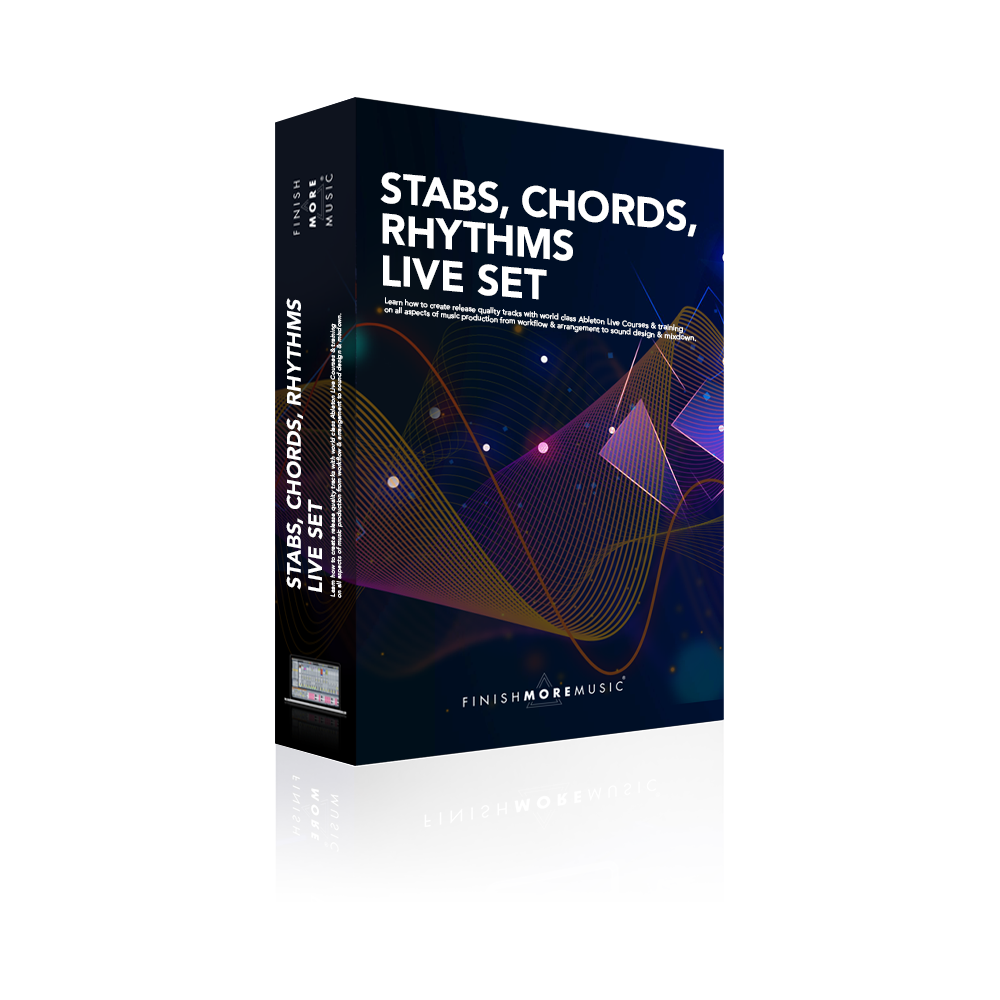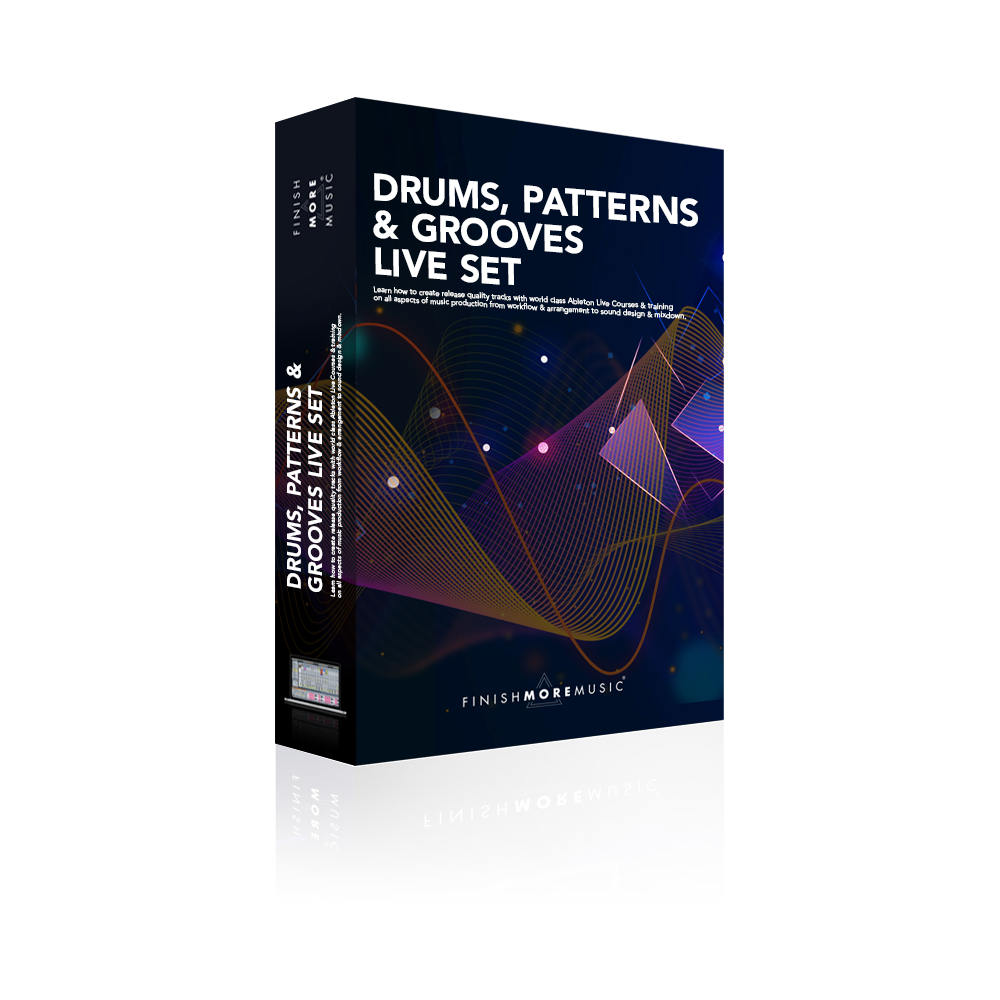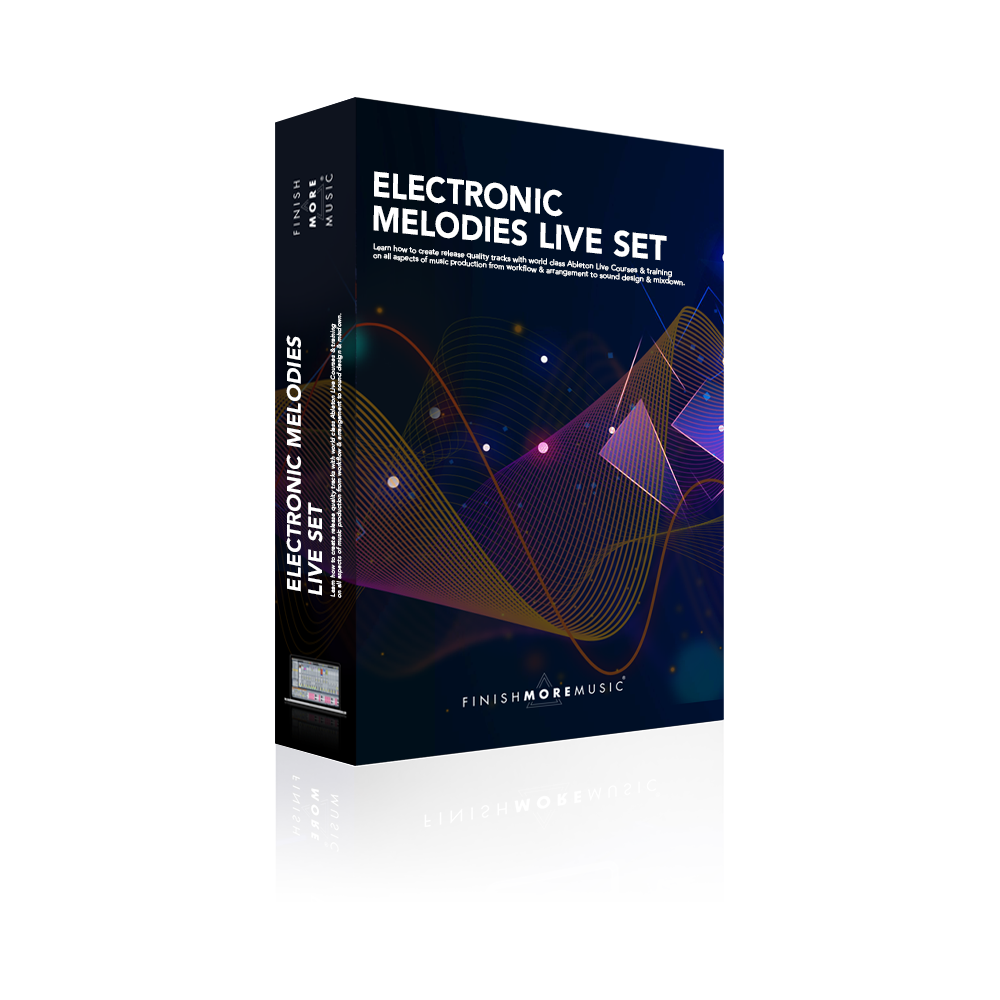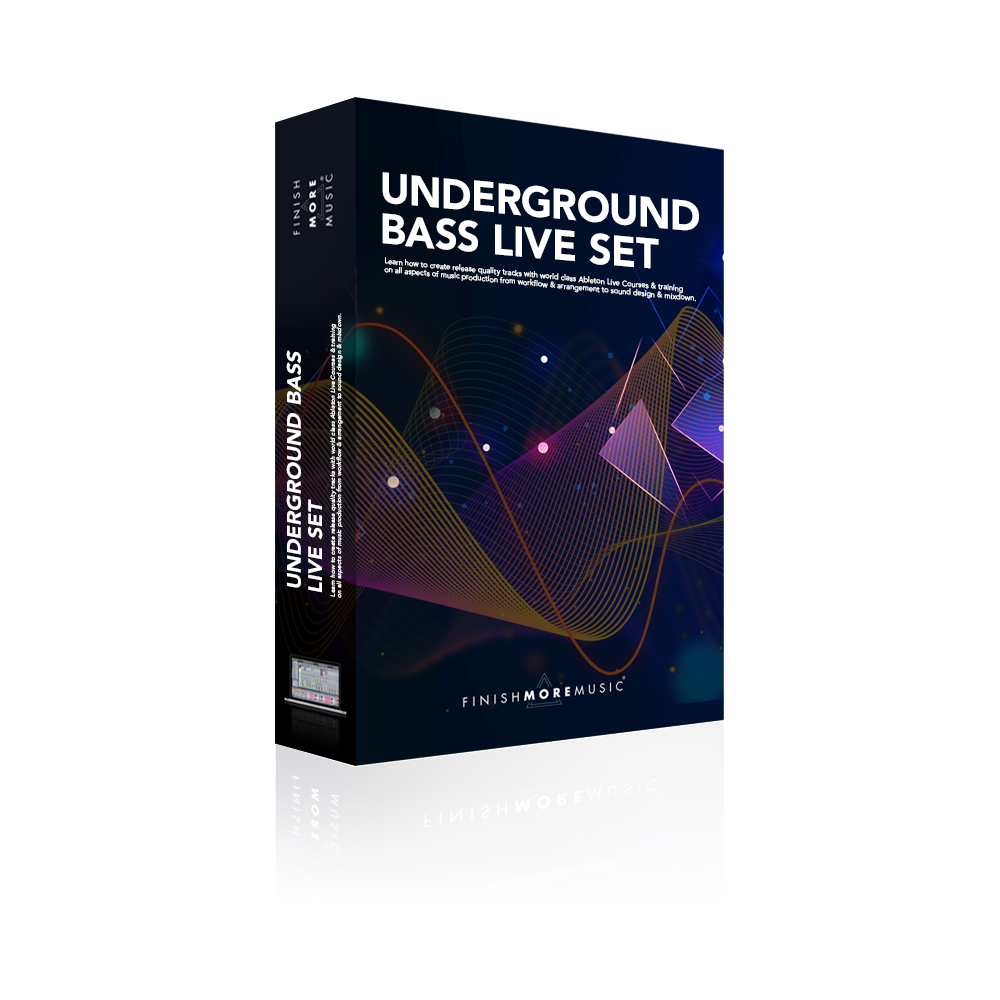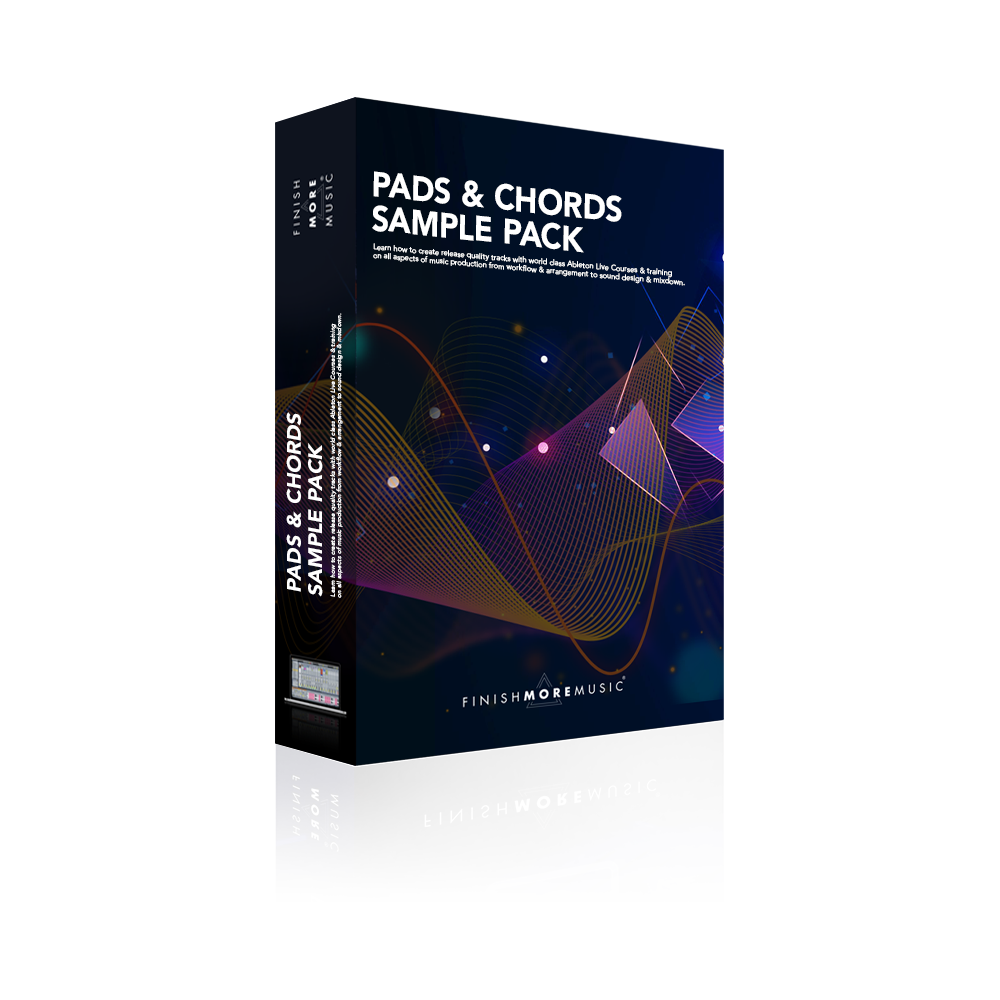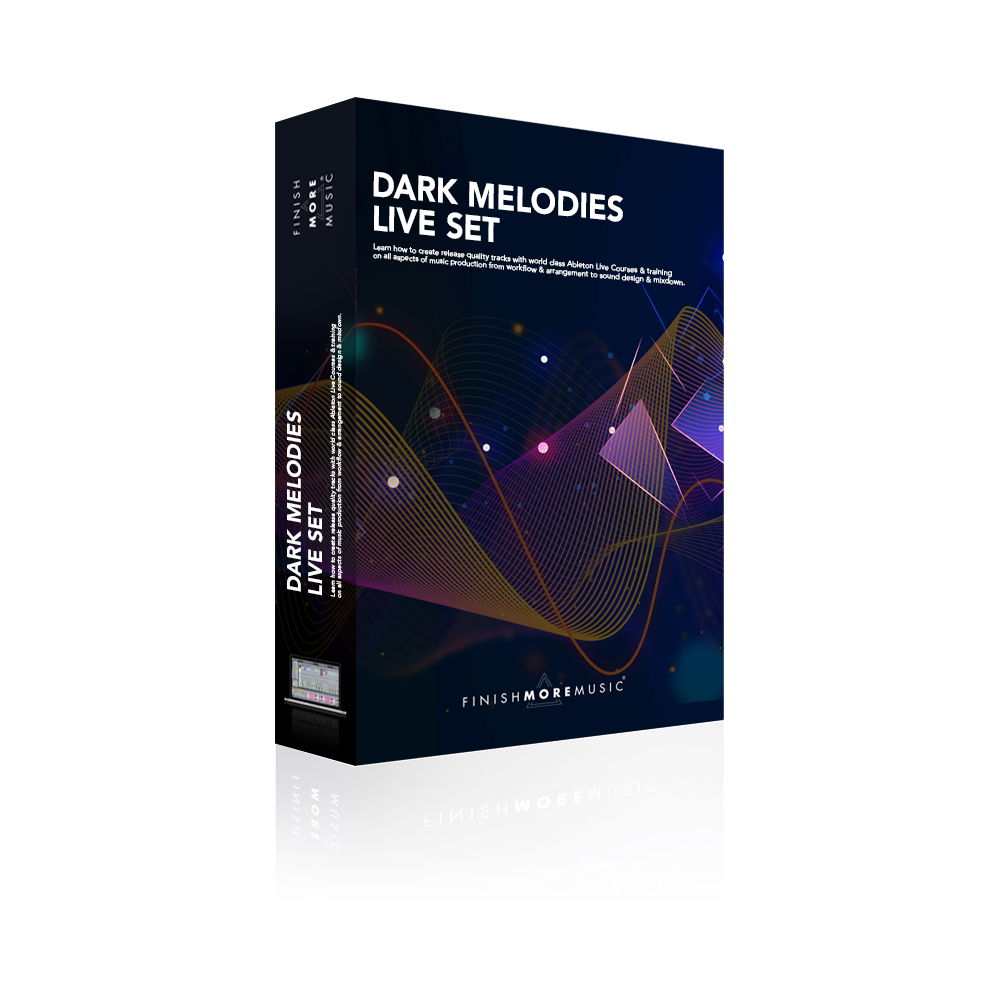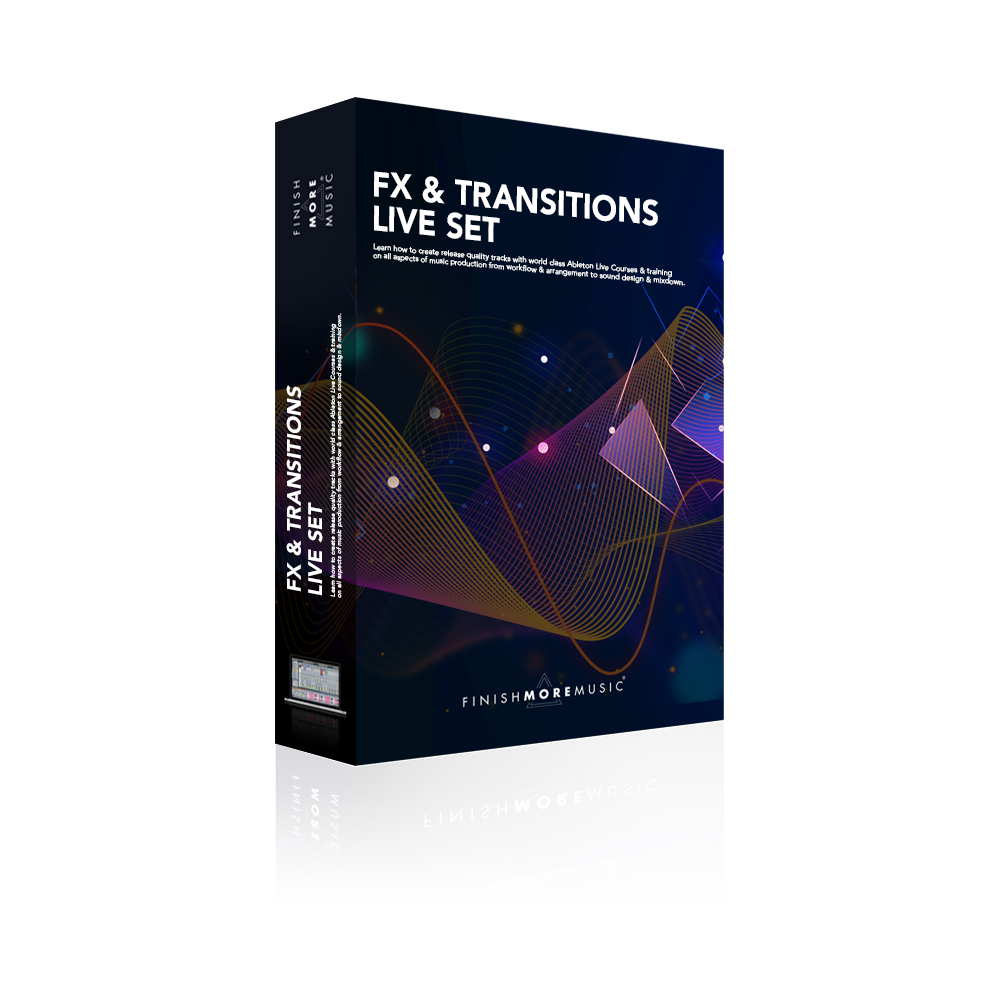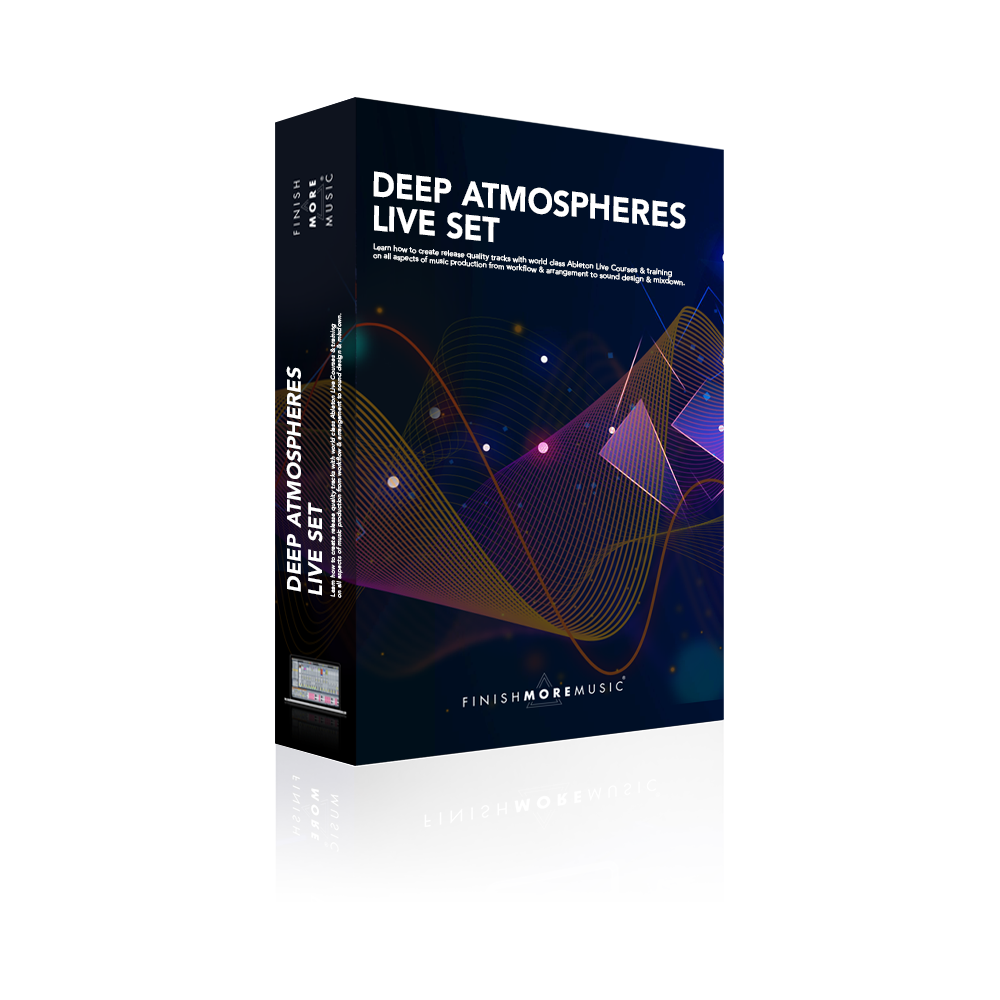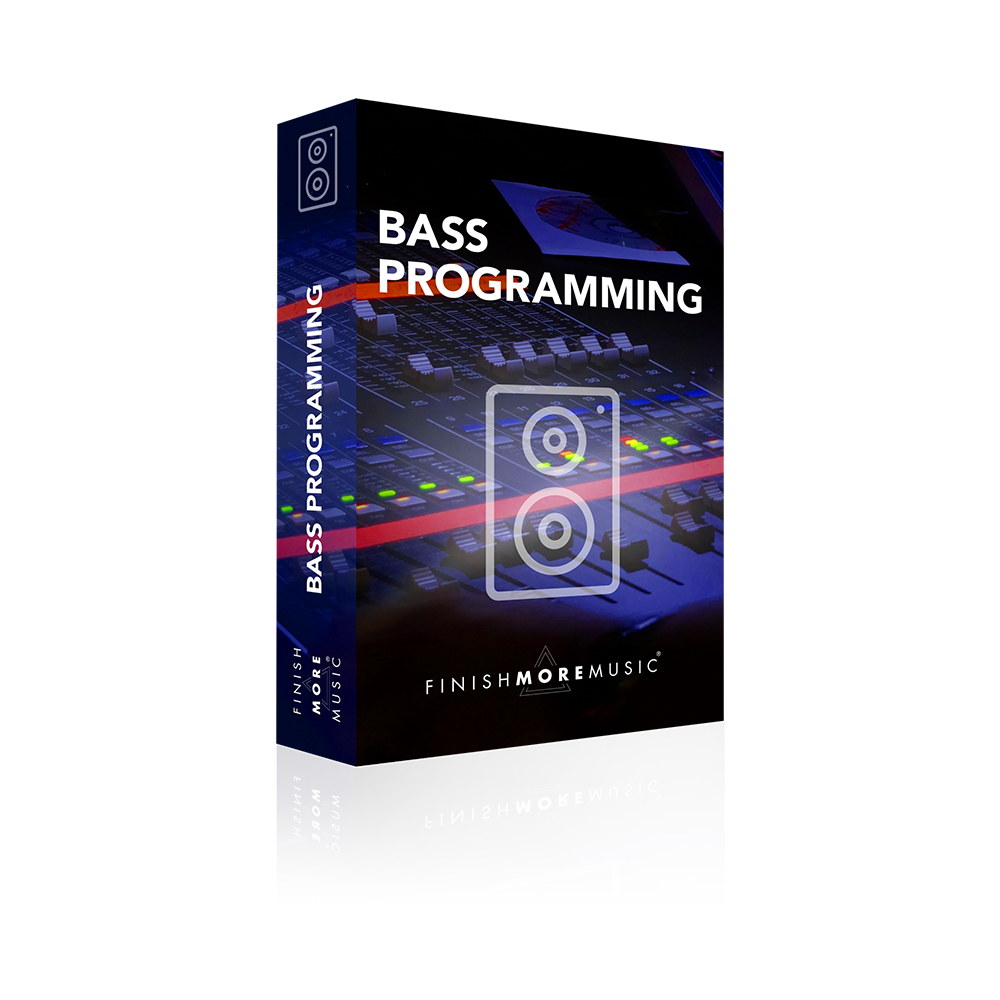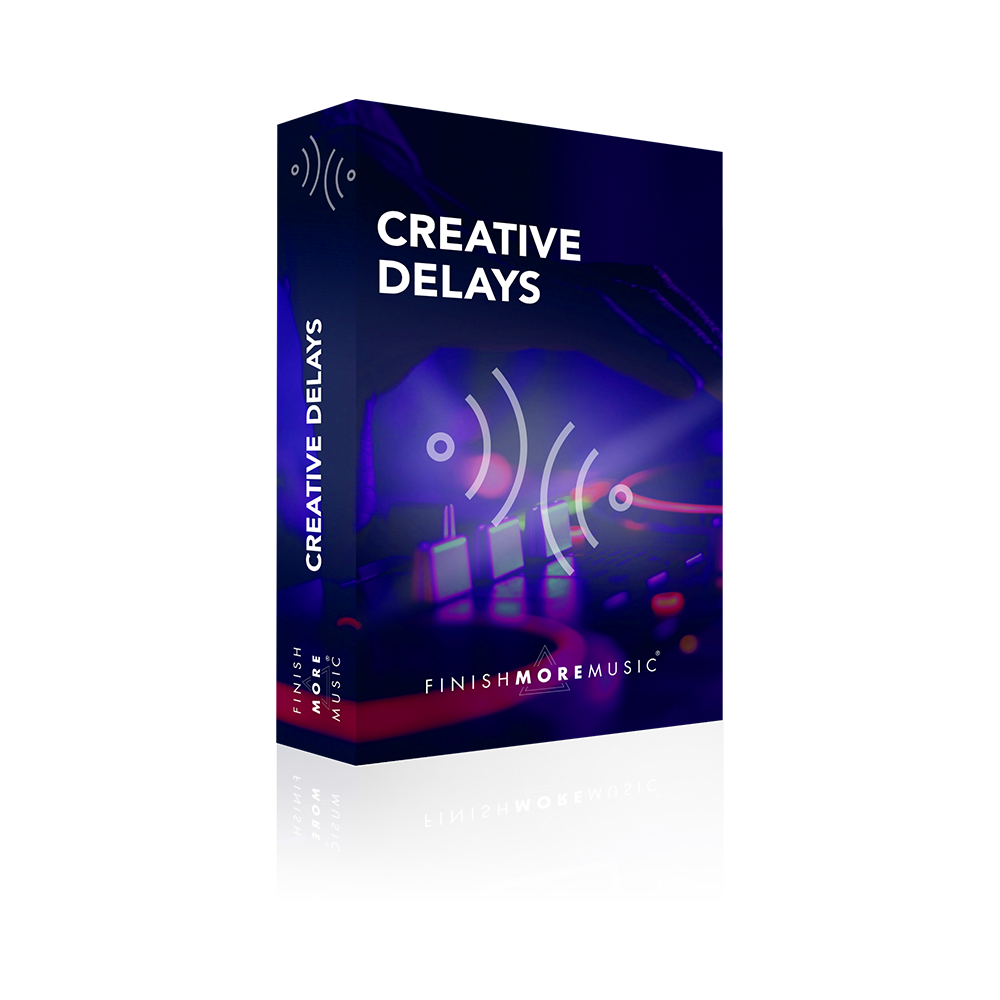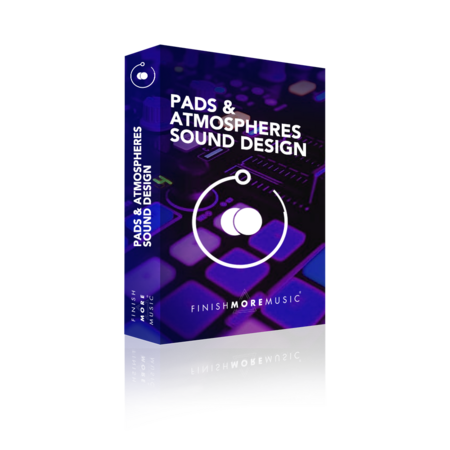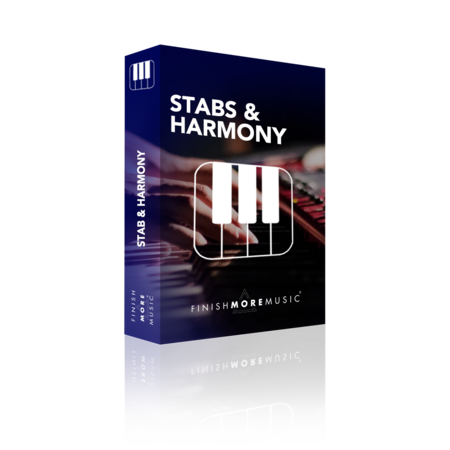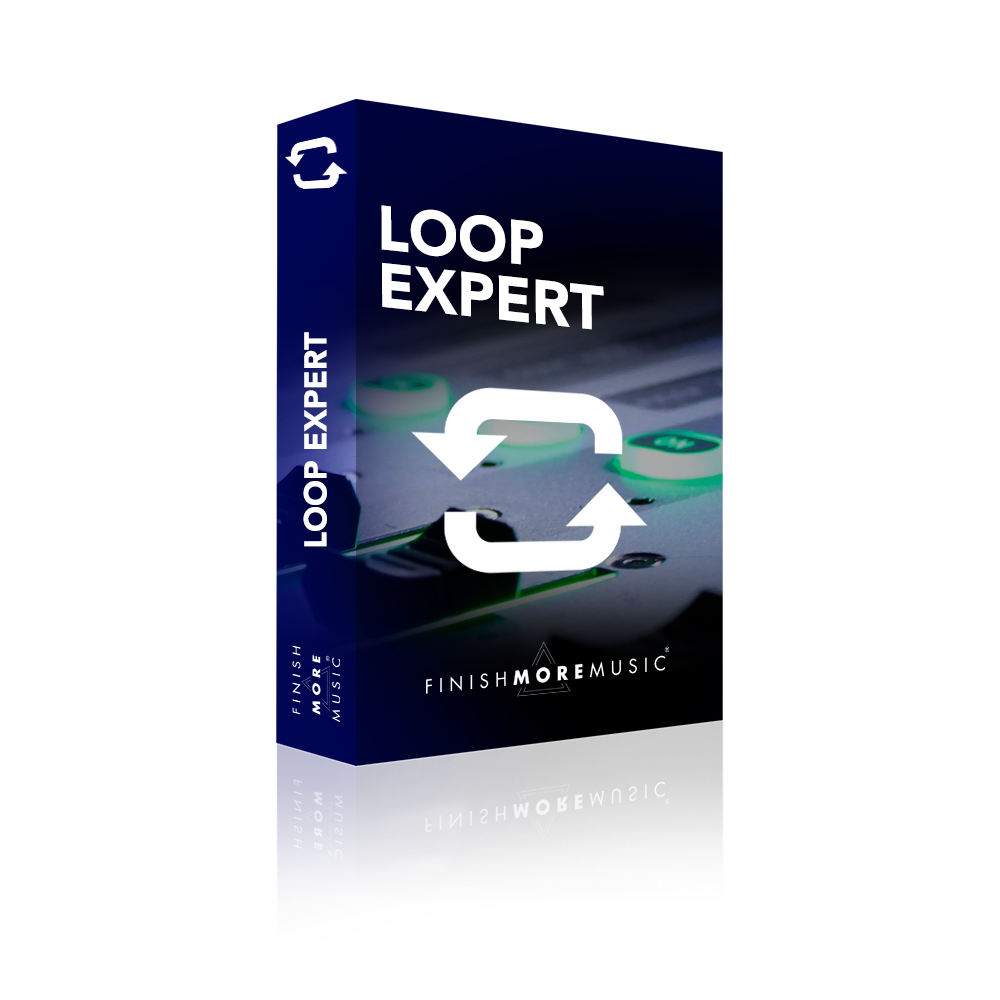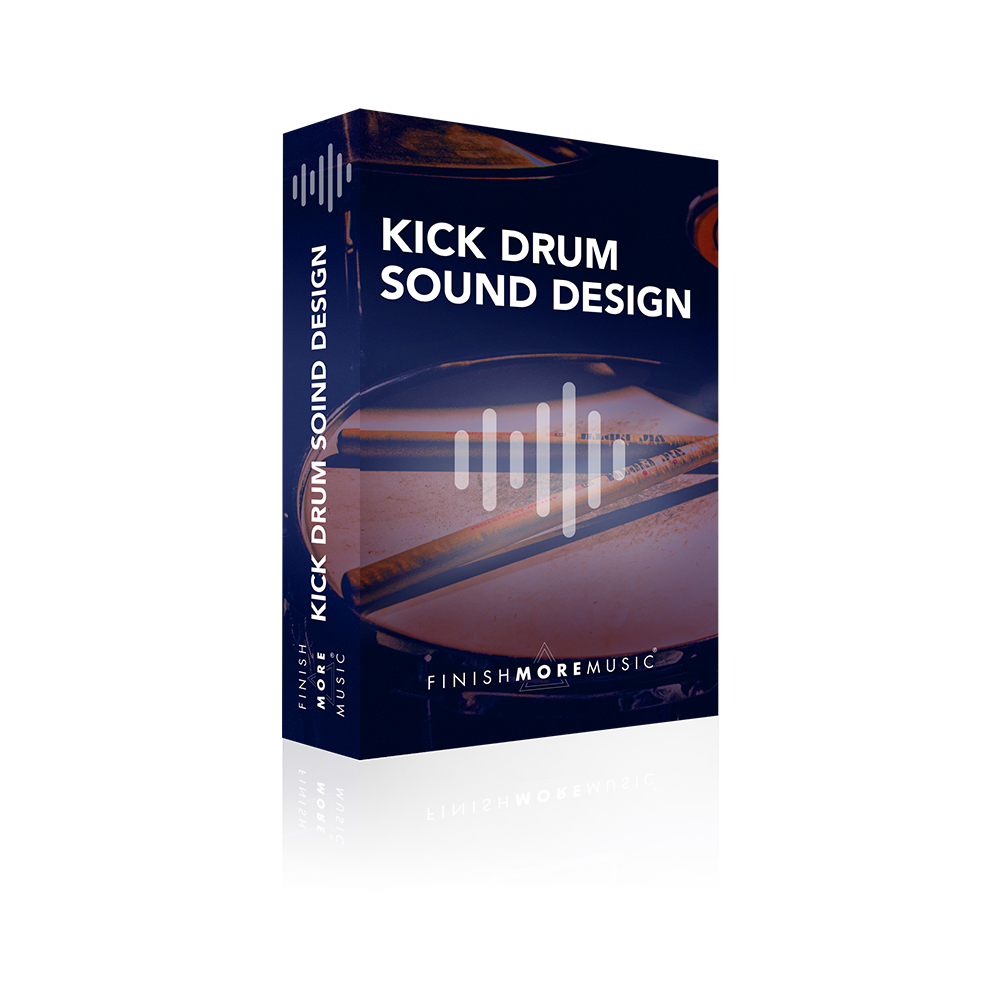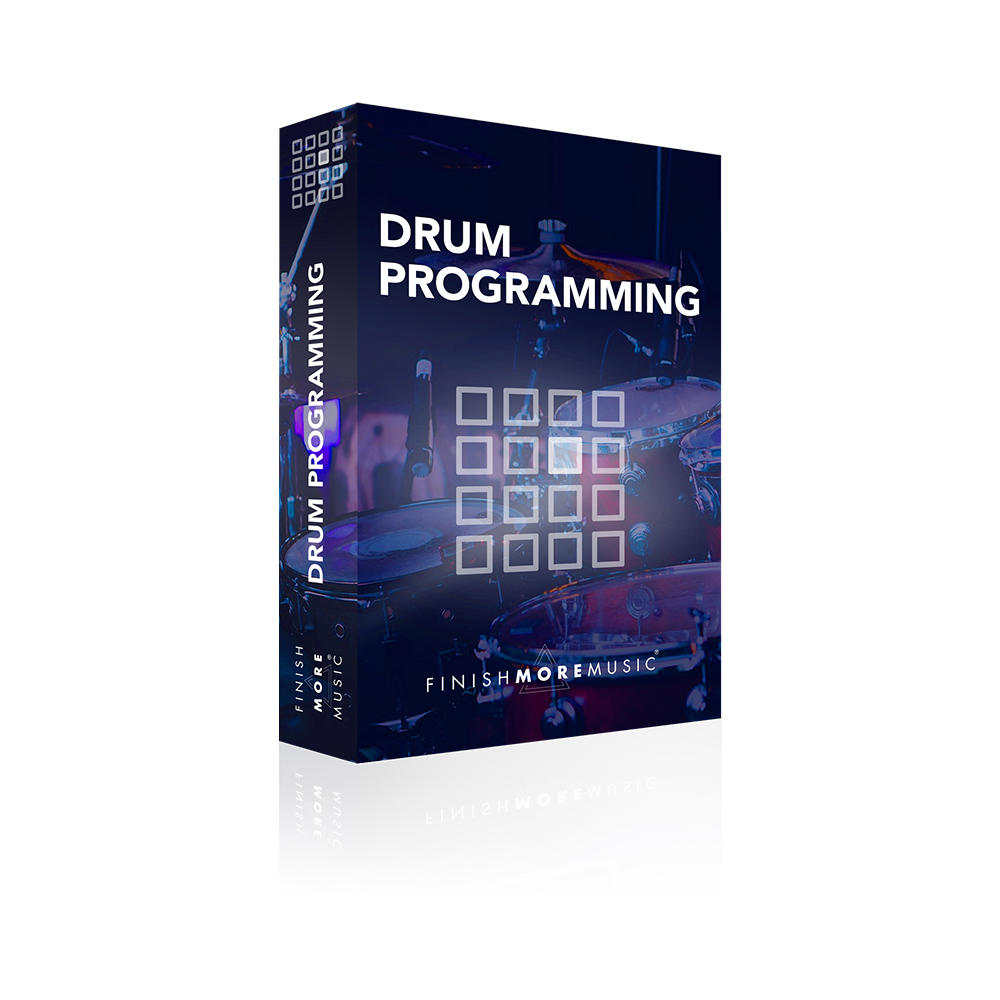Hi, I’m Keith Mills, and this is episode number 75 of the Finish More Music podcast. Today, we’re going to be talking about building motivation. Now, one of the biggest mistakes I see a lot of struggling bedroom producers making is that they wait for motivation. They wait for that perfect mental state and perfect conditions before getting started. Now, as a result, they often put making music off, and when they do get started, it only lasts for a short period of time before they’re back to procrastinating, back to buying gear, watching tutorials, and anything else in the hope that something sparks some motivation in them to get going again. So in this episode, we’re going to discuss what the pros do, in fact, what all successful people do. They create their own motivation, and it’s something that anybody can replicate.
So, let’s get started.
This is the Finish More Music podcast, a show for underground dance music producers who want to finish more and better music, and to share it with the world. My name’s Keith Mills, and every week we’ll dive into the mindset and creative strategies that will help you to move further and faster along your music production journey.
Hello, and welcome to another episode of the Finish More Music podcast. Thank you for joining me once again. It’s been a pretty full-on couple of weeks for me, because I’m currently in the absolute thickof writing the new Finish More Music workshop. So if you haven’t seen the one that we’ve put out previously, it’s a three-part video series, super highly-produced, we had a videographer, it’s kind of like a movie in a way that’s in three parts, but it’s really powerful training. And it’s completely free. It’s coming out on the 8th of October this year. We’re all hands on deck getting it done and super, super exciting stuff.
If you want to check it out, finishmoremusic.com/waitlist. Just stick your details in there, and we’ll let you know as soon as it comes out. It’s across three parts, incredibly powerful training. The last one that we put out was by far the best piece of training I’ve ever created, and I’m going all in to top it, like giving it everything I can. We’ve got the filming coming up really soon, so I’ve got so much to do to create this thing. It’s late nights, it’s weekends, it’s training, it’s reaching out to people to get help because it’s not what I do. I’m not somebody who writes what is effectively a movie. It’s a big script for something. It’s not just the stuff that you see on YouTube, which is super cool. We put lots of great videos out or it’s screen capture. But it’s actually me presenting, and it’s talking in depth about creativity and music production.
If that’s stuff that’s really important to you, it’s your passion, it’s something that you want to succeed at, then 8th of October, definitely stick that into your diary. Unquestionably, the last one and this one is proving to be exactly the same, they are the most creatively challenging projects I have ever been involved in. For sure. I create loads of stuff. It makes up the bulk of what I do. I’m the visionary at FMM, so I plot the course of where we’re going. It’s my vision, my creative vision of where we go. And there’s obviously the podcasts that you’re listening to right now, everything from that and music for tutorials and masterclasses that I teach inside of FMM and the creation of courses and content and you name it. This thing out of everything that I create is the big daddy.
That got me to thinking about how I’m showing up to it and what lessons I’ve got to share. There were two big things that I’m noticing about this characteristics that I’m bringing to the table that is helping me a great deal. The first one is discipline. And the second one, which isn’t a characteristic, but is really high for me at the moment is motivation. They’re two very, very different things, and I think there are things that people get a little bit back to front. It’s a big mistake I see a lot of people making. So I thought it’d be really powerful to talk about that.
First of all, I’m not going to get massively into discipline because episode number 32 was called No Discipline, No Success, and I go into it in some depth. So if you haven’t seen it yet, I strongly recommend… or seen it, heard it, I should say, I strongly recommend that you check that out.
Discipline is one of the most important characteristics that anyone can build. If you’ve listened to the show for a long time, you’ll know that that’s exactly the deal you get to create yourself. You get to design and build your life how you want it to be, and you get to build your own characteristics. Things don’t happen by accident. It’s not by magic. It’s all in your control. The creation and the building of discipline is vital because can you think of any successful person in any walk of life that isn’t highly disciplined? How are you supposed to show up and get stuff done on a regular basis and do new things and challenging things if you’re not a disciplined person? So No Discipline, No Success, episode number 32, scribble it down there if you haven’t given that one a listen, one of the most powerful podcast episodes, for sure.
So here’s how I’m going to split this up, here’s a little definition for you. Discipline is what gets you started, motivation is what keeps you going. So great note for you to take down. Discipline is what gets you started, motivation is what keeps you going. This is where I see a lot of people making mistakes, and maybe you’ve fallen into this trap as well. Certainly I have in the past, and I still do sometimes catch myself with it, and that’s waiting for motivation, waiting for the motivation to get started. Say, “Oh, I’m not feeling it today. I’ll get started tomorrow.” We put this thing in our heads that tomorrow magically I’ll be motivated to do this. The first day of the week, Monday, motivation Monday, right? “Monday, I’ll be motivated to do this.” Or, “The first of the month or the 1st of January, I’ll be motivated to do it.
“But we all experience the same thing, I’m sure, and that’s if you wait for motivation, you’re going to be waiting a very long time. Because we don’t get to say,”Tomorrow, I’ll be motivated.” It doesn’t work like that. But, we do get to create our own motivation, and here’s how this goes down. So rather than waiting for it, you can build it and create it. Discipline creates action. If you’re disciplined, then you can act. You will choose to act, let’s put it that way. A disciplined person will choose the action that’s in alignment with their vision. Action creates motivation, and motivation makes discipline easier. It makes the choice.
But is being a discipline person easier? It creates a cycle, what we commonly refer to as momentum. We talk about building momentum. It’s difficult to get started, but once we’ve got that rock, that boulder moving, it goes easier and easier and easier. So if you take action, if you make the choice, if you’re disciplined and you take action and you get into the studio, if that’s something that you’re not doing at the moment or any project that you might have in your life, but you’re really passionate about your music, you’re not doing it at the moment, if you take action, if you’re disciplined, and you get in the studio, and you continue to make that disciplined choice, then you’re naturally going to build motivation. You are the architect of your own motivation. And then, of course, you’re going to make more music. You’re going to make better music. You’re going to get to share that music and get it out into the world, get to connect with people, that positive vibe, the buzz of impacting and influencing other people. All of that, our vision in getting towards it, comes from lighting the touch paper, keeping that lit, and then it just goes a blaze. That’s a really powerful way of thinking about it. Once it catches fire, it’s then really difficult to put it out, right? Once we’re motivated, we tend to stay motivated.
But the mistake a lot of people are making is doing this the other way round. It’s, “I need to feel motivated to get started, to scrape myself up off of the sofa, to abandon the latest Netflix series, whatever it might be, or that YouTube videos or all of those things. I need the motivation. And if I don’t have it right now, then I’ll project into the future some magical time when it will happen.” As I said, like Monday, for some reason, Monday would be a good day to start. Some people are a Saturday, but mine is Monday. The first of some things seems like a day that’s good to start, as though that magically corresponds with the day that we’ll actually feel like it. As though on the first of every single month you’re brimming full of energy and motivation. Is that true? Of course not, right? Of course not.
The other thing that we tend to do, a trap, and maybe you can relate to this, is say something like, “I’ll get started on this, I’ll be motivated to do this when I’ve got all this stuff off my plate. When I’ve got rid of all these commitments, when I’ve got through this to-do list of stuff, I’ll be able to focus. Then I’ll be full of motivation to get started.” But again, if we think about it, when do you ever reach that perfect nirvana where you’ve got nothing to do, where your plate is absolutely clear? Sometimes. Sometimes it’s perhaps the answer. Occasionally we get that little break in the clouds, if you like, that little beam of sunshine that comes down that’s like, “Oh my word, I’ve got a long weekend, and I’ve literally got nothing to do. Nobody’s managed to fill this for me. Nothing’s on my plate. No emergencies come up. It’s my time.”
Now, question for you on that. When those moments crop up, how often do you feel motivated in them to take action? Does your motivation align perfectly with those moments of time or often do you let that time fritter away instead of getting started on something that’s important to you? Motivation isn’t something that just magically appears and aligns perfectly with our calendar. Sometimes you get a blast of motivation, but does it fit perfectly with the calendar? Probably not. So it’s something that we want to be able to generate, to build, to create on demand. And the way that we’re going to do that is by starting with discipline.
Here’s the thing with this idea of putting it off, and maybe this is something you’ve experienced as well. Particularly when things are important to us, we can tend to put them off. I’ve spoken about this before, it’s often this fear of failure that’s driving that. “It’s important. This is really important to me, and if I start it, I might fail. So I’ll just keep nudging it off.” Which when you think about it is madness because all the time, you’re not starting it, you’re guaranteeing that you fail at it. But nevertheless, we put something off. And when we put something off, when we say, “When I’ve got a clear schedule, then I’ll do this thing, or a Monday I’ll do it, on the first of the month,” more things tend to crop up, right, more distractions, more people vying for our time, more commitments in our life, more emergencies, more stuff on the to-do list. That tomorrow never comes, that first of the month that it was all going to be magic doesn’t happen and it becomes the first of next month. It’s that saying like, “Someday becomes never.” Is it? I’ve probably butchered that, right? But tomorrow becomes never, whatever it is. It just never actually gets done.
A dream and a passion or a big project or something that I’ve literally just defined as being important to us is the thing that never actually gets done, until such a point as maybe it becomes impossible to do it. When it comes to something like music, it can become even more difficult to get started. Because a lot of people get all the gear, and they spend loads and loads of time in the studio, and they don’t have any output. Because they’re not really getting started, because buying gear isn’t writing music. We know that. Watching tutorials isn’t writing music. Practicing tutorials isn’t writing music. It may feel like tinkering with a drum loop is improving production skills but unless it’s in the context of a continued stream of finished pieces of music, actually is that classic situation is you forget more than you learn.
That in itself then starts to create pressure because people start to think, “Well, I’ve been at this for a long time, and I’ve got no results, and now the results should be even better.” I’m comparing myself to someone who’s been doing it for years. Although the reality is by not finishing music, I haven’t actually been doing it at all. But that doesn’t stop the voice in the head putting the pressure on. Friends start asking, classic example, “You’ve been at this for months, for years, whatever it might be. Let’s have a listen to one of your tunes.” And it’s not there. The pressure mounts up, and the importance of it becomes so big that it becomes even more of an issue to get started for fear of failure.
It’s this cause, this thing that kicks it off is the belief that the perfect conditions, the perfect mental state to get started exists at some point in the future as opposed to making it happen right now. I’m going to give you a few tips and some ideas on how to make it happen. This is really true, because the script that I’m writing, this video series, for me it’s huge. It’s big. It’s a big deal. It’s important. I want to get it right, but it was overwhelming to look at it at the start. I knew it would be overwhelming, and I knew it would be difficult, and I knew it would be confusing. But I also knew, unquestionably, that if I wasn’t disciplined enough to show up today, right now, not leave it till tomorrow, today, because tomorrow never comes, right? Tomorrow I’ll have the same discussion with myself. And the next day, the same discussion. I knew that the only way to make it easier and the only way to succeed would be to be disciplined. It’s something that I’m really working hard on cultivating, because there’s always someone more disciplined, right?
So, how do I get to that level of discipline and that level of discipline? But by putting one foot in front of the other, of the other, of the other, now I’m regularly showing up, working on this, making breakthroughs. Sometimes it’s tough. Sometimes it gets in a knot. Sometimes it’s easy. But getting started and actually doing the thing is way, way easier now than it was at the beginning, because I’m motivated to get cracking. Let me break this down and really explain this because I think that the deeper a level that we understand things, the more it can become part of our being, when we really, really get it. And I’ve spoken to this before, you can listen to something and you can understand something, but it doesn’t mean you completely get it. And there’s loads of things, we’ve all experienced this where we’ve understood it, but then at some point in the future, whether someone puts it in a different way or we visit again or via the process of doing the thing, there’s that light bulb moment. We’re like, “Ah, yes, now I’ve got it.” That is when it becomes a part of who we are. Okay?
Discipline and creating motivation is vital for success. Every top producer, every prolific artist creates their own motivation, and they are all disciplined people. Because when you think about it, it’s not just the start of the thing, there are often breaks. If you’re a top producer, you’re a DJ, and you’re touring all over the world, there might be big chunks of time where it’s difficult to sit down and write music. So you need the discipline to be able to turn that back on in the windows. And it’d be the same for you. Maybe you’re someone who does get a load of music finished, maybe you’re a member of FMM, and you’re smashing out the tunes. You go away for a couple of weeks on holiday. Your other half says, “Love you to bits, love your passion for music, but let’s just leave that laptop back where it is, and let’s just have a little bit of family time, a little bit of us time.”
And then that means that when you get back into the studio, the motivation may not be there. It might be, but it might not. You might get back and feel a little bit disconnected from it all, and that’s going to require the discipline to get going. It could be anything, right? It could be weddings. It could be the birth of a child. It could be an illness. There are so many different things that create breaks in stuff and require discipline to get us started and to rebuild the motivation.
So here’s the relationship between discipline and motivation, here’s how you can think of this to really let this seep into who you are. Discipline, and again, episode 32, I go into this in detail, so double, double, double make sure that you scribble that down to check it out. Even if you’ve seen it already, I strongly recommend going back to it. But here’s the overview, discipline is doing what you want and not what you feel like. So let’s think of an example here. You’re getting healthy, losing weight, whatever it is, getting ripped for the summer, getting buff, whatever’s going on. That’s what you want to do, you predetermine that. Then normally the things we want are predetermined, like our vision. We create a vision of the future. It’s predetermined. We create our goals. We create a schedule for the week, for tomorrow, whatever it might be. And what’s in there, as much as possible, are the things that we want to do, are the things that are going to move us forward.
Feeling is instinctive, it’s in the moment. So do what you want, not what you feel like. You can’t feel, you can’t touch something tomorrow. You can’t smell something tomorrow. You can’t smell something in the future. There’s an easier way of saying, you can’t hear something in the future. You can’t hear something in the past. You remember it, but you can’t hear it. Feeling is right now. What we want to do tends to be something planned in the future. And if we’re not planning it, well, you don’t design your life, somebody else will. So super, super important to get it mapped out what you want to do. So discipline, do what you want, not what you feel like. So you are losing weight, let’s say. You’re getting healthy. In fact, let’s go with one even better than this. This is a classic example. Tomorrow is Saturday, and you have got some time to get in the studio. You’ve had a busy couple of weeks. You’ve been getting some time in every day, but there’s a big chunk tomorrow, there’s a track you want to finish, some stuff you want to learn. You’re really totally focused and want to do it.
But tonight, it’s your best friend’s birthday. Everyone’s going out, and they’re hitting the beers or thewines, whatever your weapon of choice is when you go out. You know that if you have more than a couple of drinks, you’re going to wake up a little bit jaded, bit shaky in the morning, and when you go in the studio, you ain’t going to perform, whatever your cut off is. Maybe you’re a five-beer person, which would mean you’re considerably younger than me, that’s for sure. A couple of beers, and that’s it. Tomorrow’s is not going to go as well, that’s for sure… Any more than, I should say. But when you get out, everyone’s hitting the drinks. If you’re like most people, you’re going to feel like having drinks. Rather than pacing yourself, you’re going to feel like getting involved in it all. There’ll be multiple points where discipline is needed in amongst that to do what you want and not what you feel like. I’m going to pass on this round. I’m going to have a glass of water instead. I’m going to do whatever.
They’ll meet that magical tipping point in the evening, and if you’ve done this you’ll know, where you look at everybody else, and they’re starting to get wasted. All of a sudden you’re like, “Oh man, I feel amazing. Everyone else is getting trolleyed. I feel great. I’m going to go on to bed. I’m going to sleep like a champion and wake up feeling super fresh and energized in the morning.” But until you get there, there will be moments to exercise your characteristic of discipline. Discipline, do what you want and not what you feel like.
So where does motivation come into this? Motivation is the feel like side, right? So do what you want, not what you feel like. What if what you feel like and what you want are the same thing? That’s when we’re motivated to do it, and we want to do it, right? And that’s this nirvana, the thing that people are waiting for, but you get to build. When that happens, it becomes easier and easier and easier to do it because the more you do it, the more you become motivated to do it. And so this exercising of discipline, well, you don’t even need to really exercise that much willpower and that much strength behind your discipline, because it becomes super, super easy. Back to that idea of momentum, hard to push the boulder to start with but once it starts rolling, easier. Motivation is what makes your choice to do the thing you want easier. The way to get there is to exercise discipline, as I say, I’ll give you a few different ways of doing this in a second, but to do that consistently enough, that it becomes easier.
Here’s a great word for this. The members inside of FMM, inside of the community often describe a feeling of being addicted to writing music. So right now, if you’re someone who feels quite a lot of resistance, and that’s natural, I totally get that, you go in the studio and you want to get on, but you end up just procrastinating, avoiding getting into YouTube and all of those things, there’s a resistance to writing. The flip side of that, once you become disciplined and motivated, and you follow a system is you become addicted to it. If you’ve ever tried to break a habit, you will know how difficult that is. And when you think of the word addiction, that’s like the habit of all habits, right? I know I’m smashing two words together there. But people with an addiction, well, that’s hard to break. Imagine being addicted to doing the thing that’s going to get you your version of success in life, how powerful that is.
Now, I’m going to explain this in a slightly funky way for you now, will just literally say what I’ve just said but ram the point home. We’re going from my man Newton and his first law, but it’s going to be applied to productivity. An object either remains at rest or continues to move at a constant velocity unless acted on by an external force. So objects in motion tend to stay in motion. If you’re writing lots and lots of music, you’ll tend to continue writing lots and lots of music. Objects at rest tend to stay at rest. If you haven’t been doing this regularly, if you haven’t built up the momentum and the motivation, then it’s going to stay there unless you exercise the discipline, which is your choice, let’s be really clear on this, and you take action. Another way of putting it, busy people stay busy. People that procrastinate keep procrastinating. I’ll say that again. Busy people stay busy. Well, let’s even change that up, productive people stay productive, procrastinators keep procrastinating.
Here’s a few steps that you can take. Maybe it’s your music. Maybe it’s another project in your life. As I always mention, everything is holistic, right? Everything you do links to everything else. If you put off a project over here, you’re likely to put your music off. If you put your music off, you’re likely to drop the ball somewhere else. Every single thing that we do affects every single thing that we do. So here’s how you can get things going. First of all, to help with the discipline if you’re finding it hard, start with the small stuff first. Here is a cracking little technique, just say to yourself, and this is like a short circuit for you, “I’m just going to do five minutes. I’m just going to go in the studio, turn the DAW on and just start making a drum loop. Five minutes, that’s it. At the end of it, I’m going to give myself a free choice, free will. I will choose, and I’m giving myself permission to choose to get back on the sofa, watching Netflix, or to choose to go down the pub or to choose to carry on. It’d be free will, I’m just going to do five minutes.” Way easier to be disciplined on something like that, right? Because that resistance to it is much lower, it’s just five minutes, just getting started.
Another great technique for you is to count down from five. Another way, this one completely shortcircuits everything for you. If you’re sitting on the sofa, hard day at work, really wanting to get in the studio. You’re just crashed on the sofa, a big comfortable sofa, you’re sinking into it, you’re like, “Ah, man, I can’t be bothered to get up right now.” But you know you really want to do it. And that will be nagging you, right? That will be like, “I really want to get up and do this.” Count down from five to zero. So countdown from five, countdown backwards. And as you start counting, do it in your head, you don’t have to be a lunatic if your family’s there. As you start counting, immediately start moving to get up from the sofa and finish the count to zero. I guarantee you’ll be out of the sofa walking towards your studio, and you won’t stop. Mad, mad way of short circuiting your mind, but it absolutely works. Make the intention to get up, start counting down, just move anything towards getting up, even just your arm. You find the rest of your body follows, and you’re up and going. That’s how you get in the studio and you get started.
The second thing is to make sure that you are following a proven system, some kind of workflow, something that definitely works so you’ve got clarity around what you are doing. Because if you’ve ever tried to do something, and you’re not sure what you’re doing or why you’re doing it, you quickly lose interest, right? If you have to make this choice to be disciplined every single day, and then you want to be motivated, you’re going to want to be interested, and you’re going to want to know what you’re doing. You want to be really zoned in on it. Clarity is absolutely huge. So if you are not following a system, if you don’t have one in your existence for music, then that is a big step in the right direction.
The third one is building a habit. Now, there are really specific ways to do this, it’s not just turning up.
There are a lot of different caveats that will reinforce a habit, and that will make sure that it really gets ingrained and it’s something that your subconscious wants to do. What you’re ultimately doing here is automating your discipline. The choice gets made for you. You go into the studio and you make music on autopilot. If you’re in there, you’re making it on autopilot, you’re following a system, which means you’re getting results, you know what you’re doing, you see progress so it becomes really enjoyable, motivation on steroids. Back to that word addiction. Back to that word addiction. Habits, amazing quote for you, “Successful people are simply those with successful habits.” Brian Tracy. Can I say that one again as well because I think it’s so impactful? “Successful people are simply those with successful habits.” If you don’t know how to do this, it’s definitely something to get on with. Again, it’s a huge focus that we have right at the beginning for people joining FMM, new members. We help them to build the habit. Because once you put this on autopilot, and you follow a system that gets you results, the motivation is sky high.
You get to engineer your own motivation. That is the beauty of it. So if right now you are someone who has been wanting to get going with your music for a while, and it’s not working out, or maybe you were going with your music and you had a break and didn’t manage to get back on the horse, so to speak, I’m hoping that this message is incredibly powerful for you. Because it isn’t a case of waiting, it’s not a case of hoping for the best. It’s a case of it being in your control. It’s your choice. It’s up to you. Discipline is what gets you started, motivation is what keeps you going. Let’s put it like this, action is your choice. Action is always within your reach. And action is what causes motivation. If you think of it like that, you become your own source of motivation. You get to build it, you get to create it.
It’s your choice in life. Super, super powerful to understand it because it’s the people who implement, the people who take action, it’s those people that reach their vision of success, who are happy, accomplished, get the validation of having their music released on the labels they always dreamed of, seeing their favorite artists play their music. Hell, if you want to be a DJ actually playing your own tracks to crowds, that stuff happens at the micro level right now of saying, “Yes, I’m in control of this. I’m going to make it happen.”
I hope you enjoyed the show. Remember, 8th of October, stick that in your diary. If you haven’t signed up to the Finish More Music waitlist, it’s finishmoremusic.com/waitlist. Super easy to remember. We will email you the moment that the free training is out. Follow me on Instagram as well if you want to see the behind the scenes. We’re going to be filming it soon, so you get to see all the mad stuff we’re up to. It’s always really exciting. Get to be a fly on the wall, peek behind the curtain, so to speak. Do let me know what you think about this episode. I’d love to hear from you. Are you someone who at the moment is struggling to get started? I’d love to hear from you. What are you going to do? What steps are you going to take? Let me know. Let’s talk it out. Instagram, hit me up with a DM, @iamkeithmills. I promise you, I will get back to you.
It’s never ceasing to amaze me how many times I get back to someone on Instagram, like, “Oh, I didn’t think you’d get back to me.” I’m like, “No, you’ve just listened to the podcast where I promise you that I would.” “Well, yeah, but… ” I absolutely promise you, I get back to every single message. So I’d love to hear from you, where you’re at, what you’re trying to achieve at the moment, what you think may be in the way of it. Let’s jam out, I’d love to hear that. The show notes for this episode finishmoremusic.com/075. Do stay safe. Take care. I hope you enjoyed the show. I’ll catch you next time.
If you’re serious about getting your music heard and climbing the ladder as a music producer, one of the skills you absolutely must master is remixes. That’s why I put together a brand new completely free ebook for you called The Art of Remixing. It features the most prolific remixes from my Finish More Music community, sharing their strategies for creating successful remix projects, ready for you to share with the world. So jump over to www.finishmoremusic.com/remix and download your free copy now. You’ll learn technical setups for creating your remix, how to add your own flair whilst respecting the original artist’s track, how to create quickly to a tight deadline, how to extract melodies and harmonies, and so much more.
As well as taking the opportunity to get more of your creative output into the world, remixing is an amazing tool for building connections with other artists and strengthening your relationship with label owners. In short, remixing is essential. Try to think of a top-level producer who doesn’t have a bunch of great remixes to their name. You can’t, right? So make sure you master the art of remixing so that when your opportunity comes, you’re ready to take it with both hands and accelerate your growth in the music industry. The ebook is totally free, so dive over now to www.finishmoremusic.com/remix, and grab your copy. See you in the next episode.
